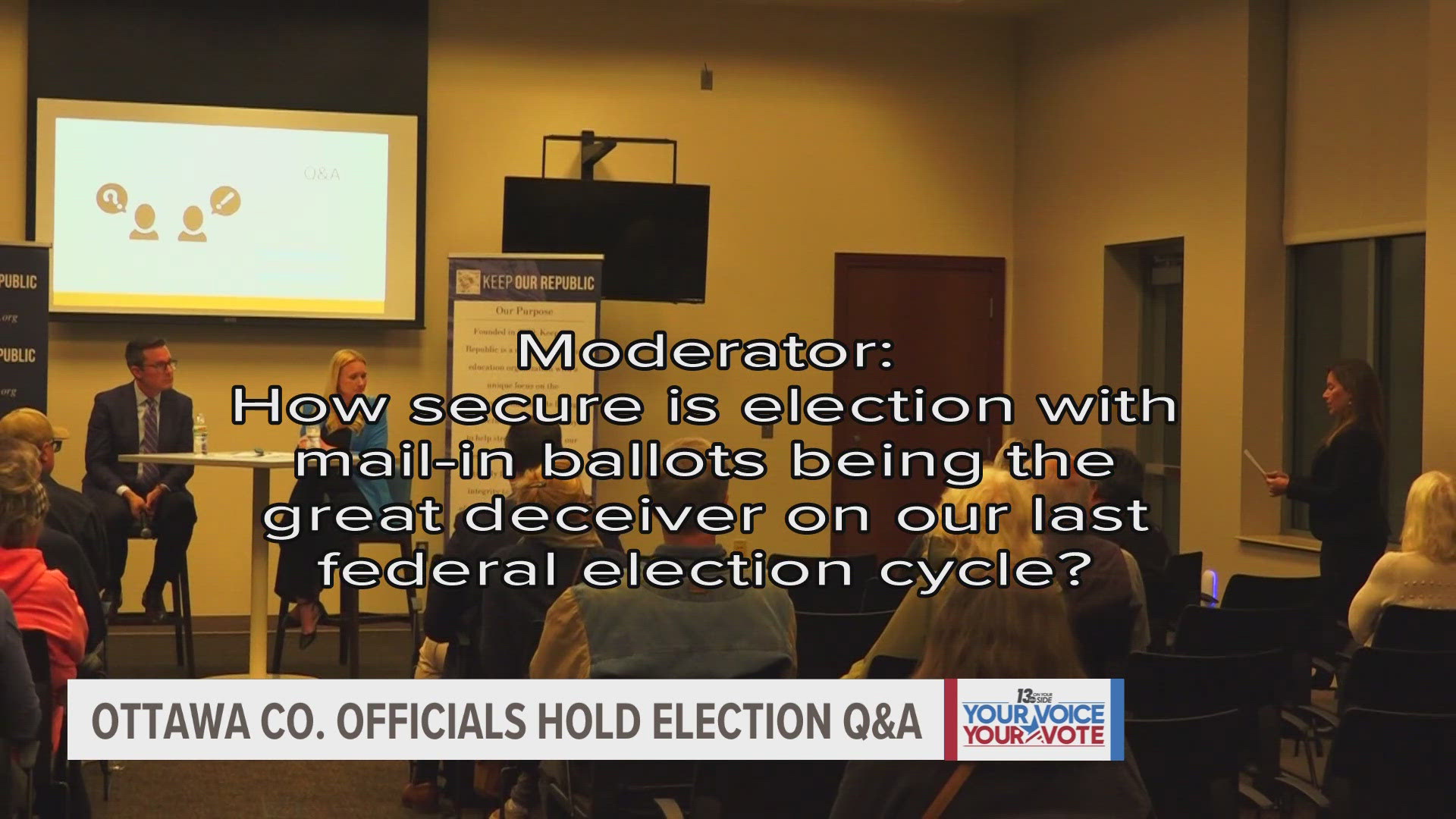GRAND RAPIDS, Mich. — Kim Coston came into Wednesday night's event at the Spring Lake District Library with hope for what Ottawa County election officials may have had to say.
"I think this is really important for people to understand from a grassroots level," Coston said.
"It was important because I feel like we all need to be educated and re-educated regularly on the way our local government works," she said. "The voting system has come under a great deal of scrutiny, as she pointed out."
It was an event where these officials - Ottawa County Clerk Justin Roebuck and the county Elections Supervisor Katie Bard - went straight to the voters.
Coston and others asked questions on the system from those who know it best.
"The reality is that we live in an environment where we have to be thinking about the safety and security of our process - both for our staff and our team, and for our larger community of election workers and our voters on election day," Roebuck said.
At the event facilitated by the non-partisan election education group Keep Our Republic, the officials answered questions on things from the journey of the ballots after counting to concerns over absentee ballots.
"The votes themselves as physical ballots, as physical receipts, they stay with your local clerk," Bard explained.
"But as to results - results at the end of the night are taken- so, there's an encrypted flash drive in our voting equipment that has basically the brains of the equipment," she said. "It has the information for that election and when you close the polls those results are on that encrypted flash drive. At the end of the night, those bipartisan teams work together to close the polls, to print out receipt tapes from the voting equipment which has the results right there listed out."
Bard then explained the process that followed, as encrypted flash drives - monitored by GPS - are returned to local clerks who turn them over to deputized county election staff.
The staff, Bard said, then return them to the county clerk's office that then aggregates the county results and report the unofficial results to the state via a secure network.
The moderator, reading from the public's questions, also asked the officials if anyone with a driver's license would be allowed to vote in a federal election.
"No, is the short answer," Roebuck said. "You have to be registered to vote."
"How secure is election with mail-in ballots being the 'great deceiver' on our last federal election cycle?" the moderator also asked, reading a member of the public's question.
"I think it's really interesting because- it's interesting to call it the 'great deceiver' because it is ultimately we had what this weird- and it was referred to I think even in the media as this 'red mirage' and 'blue wave,' right? So this idea that we had the first set of results that reported in are almost always precinct results because the workflow in that process is quicker."
In Coston's view, the officials handled the questions well.
"Obviously, there's a lot of confusion going on and has gone on around the elections - misinformation and so forth," Coston said. "It's really important to clarify what the procedures are, what the checks and balances are, what the contingency and emergency planning is."
And for Roebuck, he felt the event mirrored what they've been seeing all along in the lead-up to what all signs suggest will be a contentious election.
"I think the questions were really reflective of what we've been talking about in this season, but also just really good feedback from the community in terms of the interest level in the process and making sure that we're able to engage on all those levels and hopefully get them the information that they need," Roebuck said.

